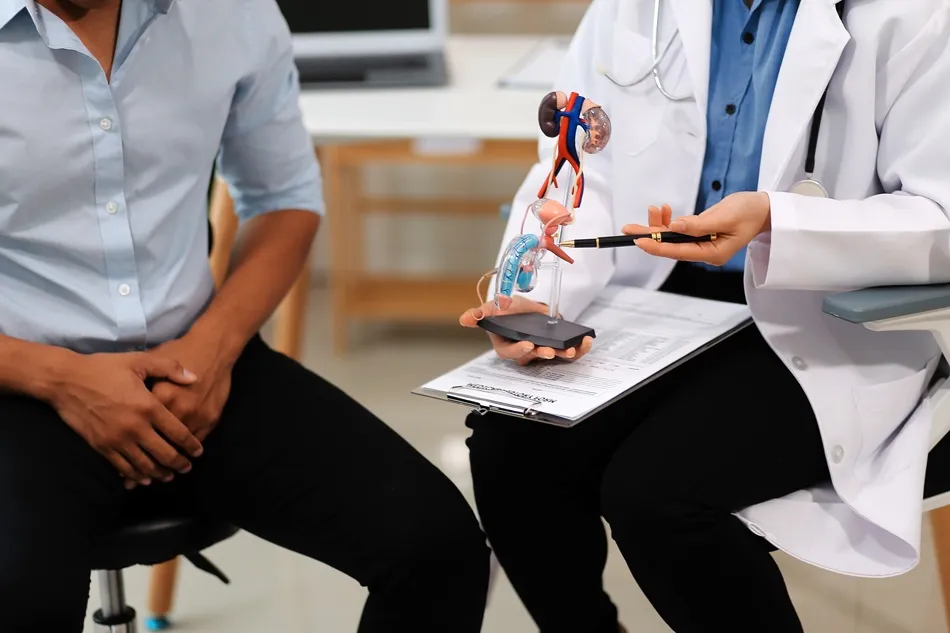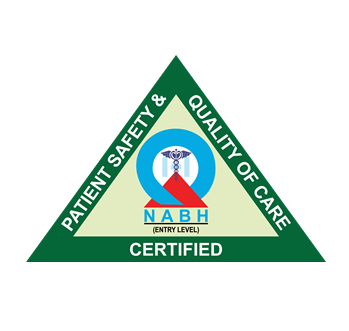
Early Signs of Kidney Disease & When to See a Doctor
Understanding Kidney Health
The kidneys are essential organs in our body and are responsible for eliminating wastes, regulating electrolytes, and controlling blood pressure. However, as with most diseases, these organs tend to have a signless progression of ailments until the illness is developed, which makes it hard to detect until it is too late. Identifying the risk factors can reduce complications and improve your kidney health over time.
Gauging Kidney Illness
Chronic Kidney Disease
Chronic Kidney Disease is a progressive illness that signals the slow deterioration of kidney function and can lead to complete failure of kidney, which will then require dialysis or kidney transplant.
Common Risk Factors
- Diabetes: Excessive blood sugar can irreparably damage kidney blood vessels.
- Hyperglycemia: Poorly managed condition can be dangerous for blood pressure.
- Glomerulonephritis: Leads to inflammation of kidney filters.
- Polycystic Kidney Disease (PKD): A hereditary disease causing cysts in the kidney.
- Autoimmune Conditions: Lupus and similar diseases can cause kidney damage.
- Overuse of Analgesics: Excessive use of ibuprofen or naproxen can harm the kidneys.
Preliminary Signs of Kidney Failure
1. Changes in Urinary Patterns
- Frequent or reduced urination with pain.
- Dark, foamy urine or presence of blood.
- Feeling an urge but difficulty urinating.
- Frequent urination at night (nocturia).
2. Edema (Swelling)
- Swelling in legs, hands, ankles, face.
- Puffy eyelids, especially in the morning.
3. Weakness and Fatigue
- Constant lethargy even with minimal activity.
- Lack of erythropoietin causes abnormal tiredness.
4. Shrinking Breath Capacity
- Fluid retention in lungs causes breathlessness.
- Anemia leads to increased fatigue.
5. Skin and Digestive Issues
- Dry, itchy skin due to mineral imbalance.
- Nausea, vomiting, and appetite loss.
- Metallic taste in the mouth.
When to Seek Medical Help
Consult a Physician When You:
- Notice changes in urination patterns.
- Experience unexplained swelling in legs, ankles, or eyes.
- Feel persistent weakness, dizziness, or breathlessness.
- Experience nausea, loss of appetite, or a metallic taste.
- Have extremely itchy, dry skin.
Seek Immediate Medical Care If:
- Severe lower back pain occurs suddenly.
- Hematuria (blood in urine) is present.
- Chronic inability to urinate.
- Severe toxin buildup symptoms like confusion or seizures appear.
Tests and Procedures
- Blood Work: Checks creatinine, BUN, and GFR.
- Urinalysis: Identifies protein, blood, or other abnormalities.
- Imaging: Ultrasound or CT scans detect cysts or kidney stones.
- Biopsy: Tissue analysis for diagnosing kidney disease.
How to Maintain Kidney Health
1. Managing Diabetes and Blood Pressure
- Control blood sugar levels.
- Keep blood pressure below 130/80 mmHg.
- Follow prescribed medications.
2. Staying Hydrated
- Drink enough water daily.
- Avoid excessive sugary and caffeinated drinks.
3. Following a Kidney-Friendly Diet
- Limit salt, processed foods, and excessive protein.
- Eat kidney-friendly foods like berries, apples, and fish.
- Reduce potassium and phosphorus if advised by a doctor.
4. Exercising Regularly
- Engage in light activities like walking or yoga.
- Aim for at least 30 minutes of exercise most days.
5. Reducing Painkiller and NSAID Use
- Avoid excessive use of ibuprofen or naproxen.
6. Limiting Alcohol and Quitting Smoking
- Alcohol strains kidneys and raises blood pressure.
- Smoking damages blood vessels, impacting kidney function.
7. Regular Health Check-Ups
- Those with risk factors should undergo regular kidney function tests.
Conclusion
Recognizing early warning signs and taking preventive measures can significantly reduce kidney disease complications. If symptoms like frequent urination changes, fatigue, swelling, or nausea occur, consult a doctor for diagnosis and treatment.
By managing risk factors, leading a healthy lifestyle, and attending regular check-ups, you can protect your kidney health and enhance your overall well-being.

